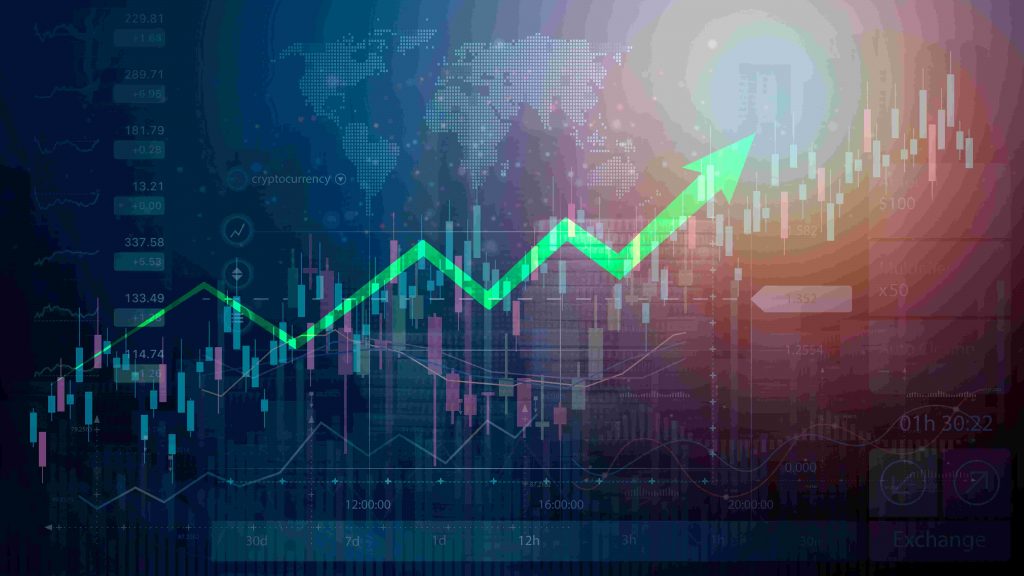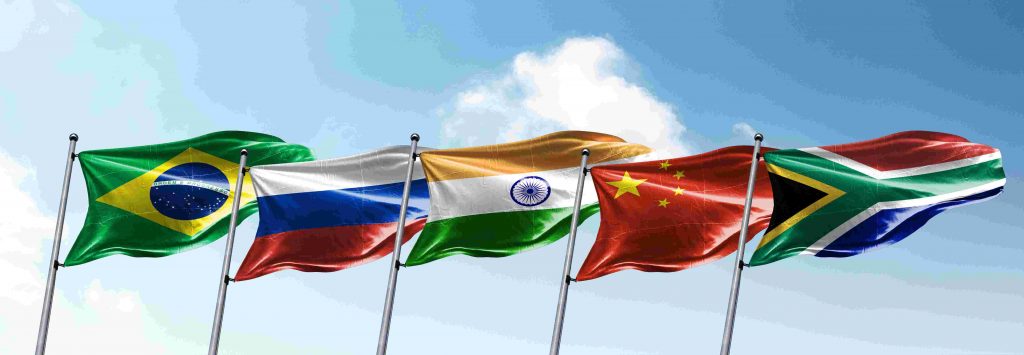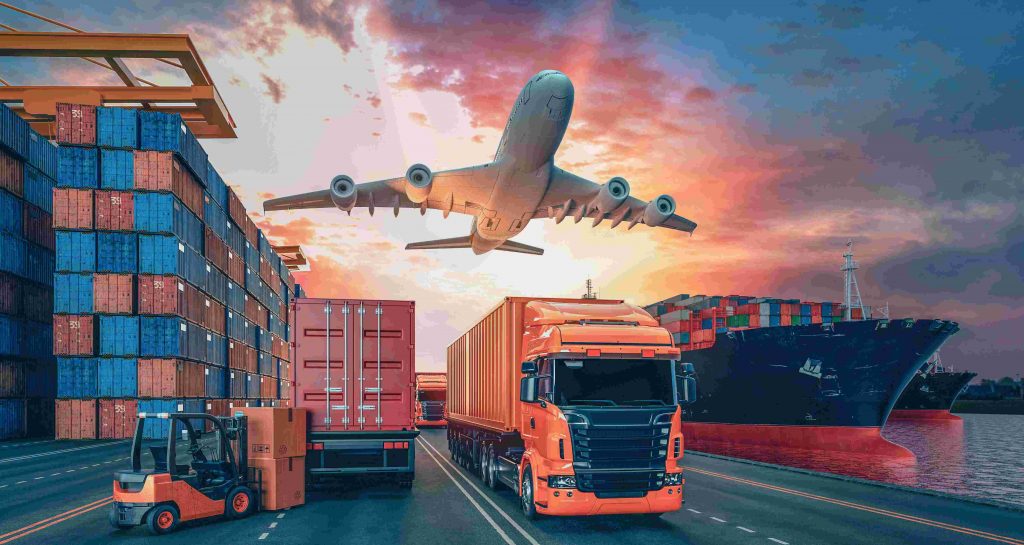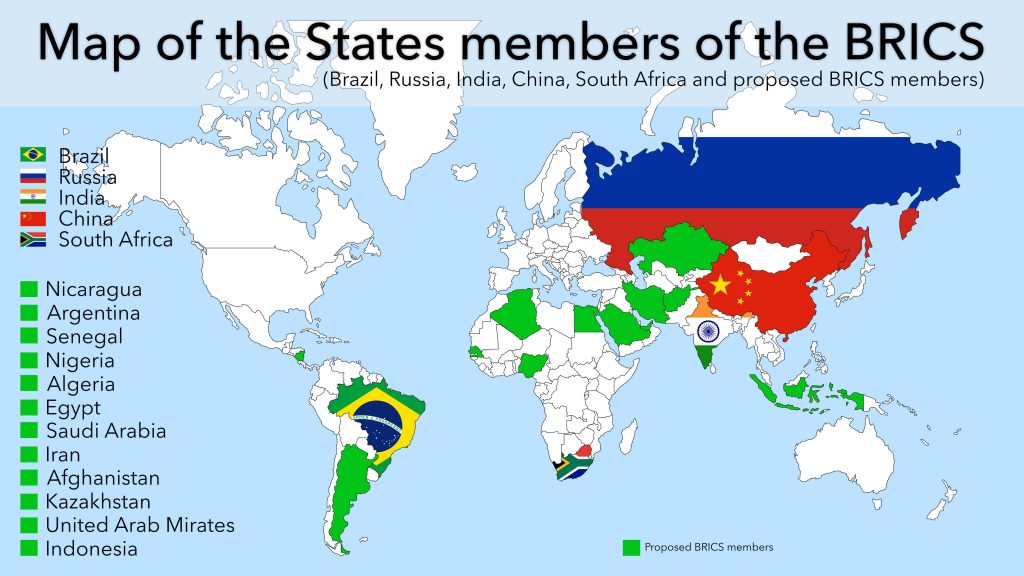In today's rapidly changing global economy, the rise of the BRICS nations - Brazil, Russia, India, China, and South Africa - is hard to ignore. These five nations have emerged as powerful players on the world stage, shifting the balance of economic power and challenging traditional models of global dominance.
As the BRICS countries continue to grow and develop, they are reshaping the global economic landscape in a number of ways. Their combined economic output now accounts for a significant portion of the world's GDP. With their large populations and abundant resources, they hold immense potential for future growth and influence.
Each of the BRICS nations brings its own unique strengths and challenges to the table. Brazil is known for its agricultural and natural resources, Russia for its vast energy reserves, India for its highly skilled workforce and burgeoning middle class, China for its manufacturing prowess, and South Africa for its abundance of mineral resources.
As these nations collaborate and form alliances, they are not only boosting their own economies but also influencing the global market. The rise of the BRICS nations is a testament to the changing dynamics of the global economy and presents both opportunities and challenges for businesses and investors around the world.
History and formation of BRICS
The formation of BRICS can be traced back to the early 2000s when the economies of Brazil, Russia, India, and China began to show remarkable growth and potential. The four nations recognised the need for closer cooperation and established the BRIC grouping in 2006. South Africa joined the group in 2010, and it was then renamed BRICS. The formation of this alliance was driven by a shared vision of emerging economies and a desire to challenge the dominance of Western economies.
The BRICS nations have a combined population of over 3 billion people, accounting for nearly 40% of the world's population. This demographic advantage gives them a significant edge in terms of market potential and labour force. Additionally, the BRICS countries boast abundant natural resources, including oil, minerals, and agricultural products, which further contribute to their economic strength.
Economic significance of BRICS
The economic significance of the BRICS nations cannot be understated. Together, they account for nearly 25% of global GDP, and their share is expected to continue growing in the coming years. The BRICS economies have experienced rapid growth rates, outpacing those of many developed nations. Their ability to weather the global financial crisis of 2008 and subsequent economic downturns is a testament to their resilience and potential.

One of the key factors driving the economic growth of BRICS nations is their emphasis on domestic consumption. Rising incomes and a burgeoning middle class in countries like China and India have led to increased demand for consumer goods and services.
This has created a vast market for businesses both within and outside the BRICS nations. Furthermore, BRICS countries have been investing heavily in infrastructure development, which has further stimulated economic growth and attracted foreign investment.
The role of BRICS in shaping the global economy
The rise of the BRICS nations has challenged the traditional dominance of Western economies in shaping the global economy. The BRICS countries, with their combined economic might and growing influence, have become key stakeholders in international economic and political forums.
They have been vocal advocates for a more equitable global economic order and have called for reforms in institutions like the International Monetary Fund and the World Trade Organisation.
BRICS nations have also taken steps to strengthen their economic ties through initiatives such as the New Development Bank (NDB) and the Contingent Reserve Arrangement (CRA). The NDB, often referred to as the BRICS Bank, aims to provide funding for infrastructure projects in developing countries.
The CRA, on the other hand, is a reserve fund that provides financial support to member countries in times of economic crisis. These initiatives demonstrate the willingness of BRICS nations to cooperate and support each other's economic growth.
Key industries and sectors driving the growth of BRICS nations
Each of the BRICS nations brings its own unique strengths and industries to the table, driving their economic growth and shaping the global economy in different ways.

- Brazil, known for its vast agricultural resources, is a major exporter of commodities such as soybeans, coffee, and beef. It also has a thriving manufacturing sector, particularly in the automotive and aerospace industries.
- Russia, with its vast energy reserves, is a major player in the global oil and gas market. It is one of the largest exporters of oil and natural gas, making it a key energy supplier to many countries around the world. Russia also has a strong defence industry and is known for its aerospace and nuclear technologies.
- India, with its large population and skilled workforce, has emerged as a global leader in the IT and services sector. The country has a thriving software industry and is a major player in areas such as business process outsourcing, software development, and digital services. India also has a growing manufacturing sector, particularly in industries such as automobiles and pharmaceuticals.
- China, often referred to as the "factory of the world," is known for its manufacturing prowess. The country is the largest exporter of goods globally and is home to a wide range of industries, including electronics, textiles, and machinery. China has also made significant investments in infrastructure development, including the Belt and Road Initiative, which aims to connect Asia, Europe, and Africa through a network of infrastructure projects.
- South Africa, with its abundant mineral resources, is a leading producer of gold, platinum, and diamonds. The country also has a well-developed financial services sector and is a major hub for trade and investment in Africa. South Africa has been working to diversify its economy and promote sectors such as tourism, manufacturing, and renewable energy.
Trade and investment opportunities within BRICS

The rise of the BRICS nations has opened up numerous trade and investment opportunities both within the alliance and for businesses and investors from around the world. The sheer size of the BRICS economies and their growing middle-class consumer base makes them attractive markets for companies looking to expand their global footprint.
Intra-BRICS trade has been on the rise, driven by increasing economic cooperation and the removal of trade barriers. The BRICS nations have signed several agreements to promote trade facilitation and reduce tariffs, making it easier for businesses within the alliance to trade with each other. The BRICS Business Council, composed of representatives from the private sectors of each member country, has also been instrumental in promoting trade and investment among the member nations.
Furthermore, BRICS nations have been actively seeking foreign investment to support their economic growth. They have implemented various measures to attract foreign companies, including tax incentives, streamlined regulations, and infrastructure development. As a result, many multinational corporations have established a presence in BRICS countries, capitalising on the vast market potential and competitive advantages offered by these economies.
Challenges and obstacles faced by BRICS
Despite their significant achievements, the BRICS nations face a number of challenges and obstacles that could impede their growth and influence in the global economy.
One of the key challenges is the need for economic diversification. While the BRICS countries have made remarkable progress in certain industries or sectors, their economies still heavily rely on a few key areas. For example, Brazil's overreliance on commodities makes it vulnerable to fluctuations in global commodity prices. Similarly, Russia's heavy dependence on the energy sector exposes it to risks associated with oil price volatility.
Another challenge is income inequality and poverty. Despite their economic growth, the BRICS nations still have significant populations living in poverty. Addressing income disparities and ensuring inclusive growth will be crucial for the long-term stability and sustainability of these economies.
Additionally, geopolitical tensions and trade disputes have the potential to disrupt the economic cooperation among BRICS nations. Disagreements over territorial claims, trade imbalances, and political differences can strain the relationships within the alliance and hinder their ability to work together effectively.
Read More: The Top Five Stock Indices You Should Know About
Impact on international relations and geopolitics
The rise of the BRICS nations has had a profound impact on international relations and geopolitics. Their growing economic and political influence has challenged the traditional power dynamics and given rise to a multipolar world order.
BRICS nations have been actively engaging with other emerging economies and developing countries through initiatives such as the BRICS Plus and the BRICS Outreach. These initiatives aim to foster cooperation, share best practices, and promote economic development among a wider group of nations.
Furthermore, BRICS countries have been advocating for a more equitable global governance system. They have called for reforms in international financial institutions to ensure greater representation and voice for emerging economies. The BRICS nations have also been vocal proponents of multilateralism and have reaffirmed their commitment to the principles of the United Nations and international law.
Future prospects and potential

The future prospects and potential of the BRICS nations remain promising. Despite the challenges they face, their large populations, abundant resources, and growing middle class present immense opportunities for future growth and development.
BRICS nations have been investing heavily in education and innovation, recognising the importance of human capital and technological advancements in driving economic growth. They have also been focusing on sustainable development and green technologies, aiming to reduce their carbon footprint and address environmental challenges.
The ongoing collaboration and cooperation among the BRICS nations, coupled with their increasing integration into the global economy, are likely to further enhance their influence and importance. As the world becomes one, the BRICS nations are in a position to leverage their economic strengths and shape the global economy in the years to come.
Final Thoughts On The Ongoing Influence & Importance of BRICS in The Global Economy
In conclusion, the rise of the nations has been a game-changer in the global economy. These five nations, with their combined economic power, shifting demographics, and growing influence, are reshaping the global economic landscape.
The BRICS nations have emerged as key players on the world stage, challenging traditional models of global dominance and advocating for a more equitable international order. Their economic significance, trade and investment opportunities, and impact on international relations and geopolitics cannot be ignored.
While the BRICS countries face challenges and obstacles, their future prospects and potential remain promising. As they continue to grow and develop, the nations will play an increasingly important role in shaping the global economy, offering new opportunities and challenges for businesses and investors around the world.
The rise of the BRICS nations is a testament to the changing dynamics of the global economy, where emerging economies are gaining momentum and challenging the established order. As the world continues to evolve, it is essential to recognise and understand the influence and importance of the BRICS nations in shaping the global economy of tomorrow.
